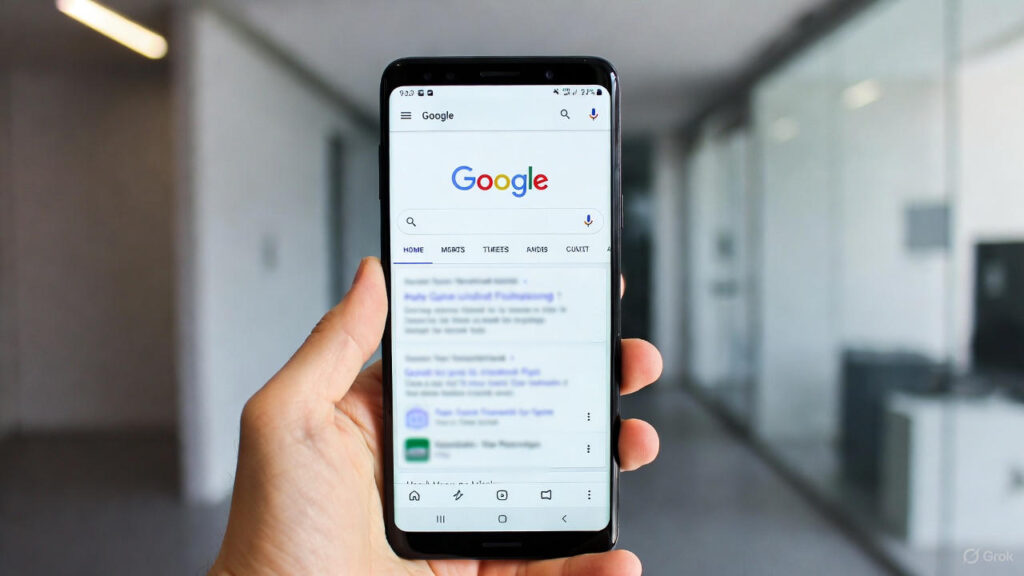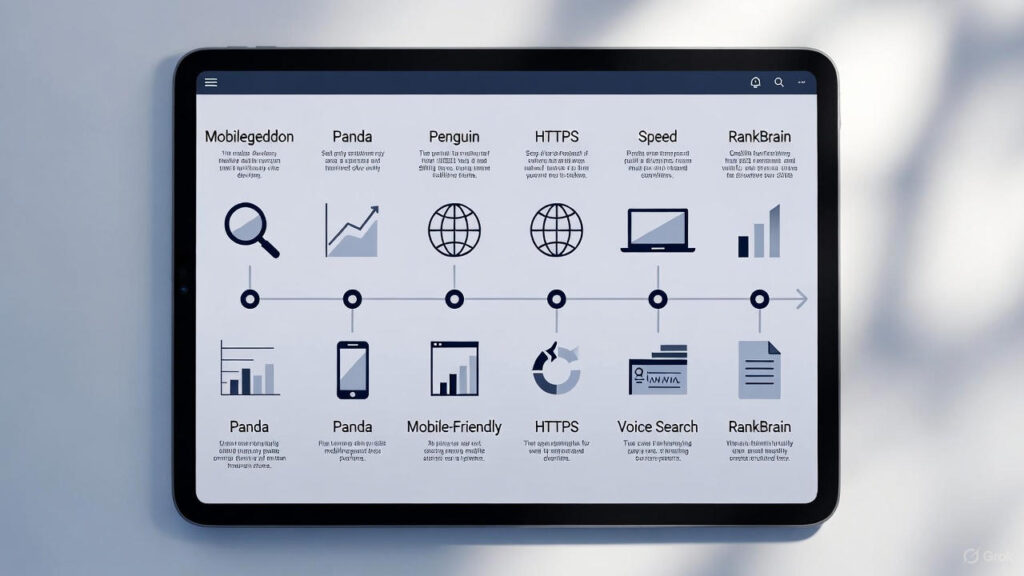The way people browse the internet has completely transformed over the past decade. Phones are no longer just for chatting or scrolling social media — they’re now our main window to the web. From shopping and streaming to learning and working, we do almost everything online through our mobile devices.
According to Statista, more than half of all global web traffic in 2021 came from mobile — and that number keeps growing.
This massive shift forced Google to change the way it ranks websites. Enter mobile-first indexing — a major update that made the mobile version of a website the primary source for how Google crawls, indexes, and ranks pages.
In this guide, we’ll break down what mobile-first indexing is, why it matters, and how you can make sure your website stays competitive in today’s mobile-driven world.
What Is Mobile-First Indexing?
Mobile-first indexing simply means Google now looks at the mobile version of your website first when deciding how it ranks in search results.

Before this change, Google used the desktop version as its main reference. But as more people started browsing on phones, it became clear that the mobile experience needed to take center stage.
Why Google Made the Change
It all comes down to how people use the internet. Since the majority of searches now happen on mobile, Google wants to make sure the results it shows work well for those users.
If your website performs poorly on mobile — with slow loading times or hard-to-read layouts — it’s less likely to rank well. In short, Google rewards mobile-friendly sites because that’s what users prefer.
Timeline of Mobile-First Indexing
- 2016: Google began experimenting with mobile-first indexing.
- 2018: The rollout started for select websites.
- March 2021: Mobile-first indexing became the default for all sites.
Since then, Google primarily considers your mobile site when determining your search rankings — even if your desktop version looks perfect.
How Mobile-First Indexing Affects SEO
Mobile-first indexing changed SEO strategies in several key ways. Let’s look at what matters most.

1. Page Speed Is Crucial
On mobile, speed is everything. Users expect websites to load instantly, and research shows that 53% of mobile visitors leave a site that takes longer than three seconds to load.
Why it matters:
- Slow pages increase bounce rates.
- High bounce rates hurt your rankings.
- Faster sites keep visitors engaged and convert better.
How to improve page speed:
- Compress and optimize images.
- Minify CSS, JavaScript, and HTML.
- Use browser caching and CDNs.
- Test performance using Google PageSpeed Insights or Lighthouse.
Also Read: The Top SEO Trends You Need to Know in 2026
2. Responsive Design Is a Must
A responsive design means your website automatically adjusts to fit any screen size. With mobile-first indexing, this isn’t optional — it’s essential.
Why it’s important:
- Delivers a smooth experience across all devices.
- Prevents duplicate content issues.
- Makes it easier for Google to crawl and index your site.
Best practices:
- Use flexible layouts and scalable images.
- Check usability with Google’s Mobile-Friendly Test.
3. User Experience (UX) Drives Rankings
Google values websites that offer a great mobile experience. If visitors find your site easy to use and navigate, they’ll stay longer — and Google takes that as a positive signal.

Elements of good mobile UX:
- Simple menus and easy-to-tap buttons.
- Readable text (no zooming required).
- Clean design with minimal clutter.
- Touch-friendly forms and links.
Helpful tools:
Use heatmaps (like Hotjar or Crazy Egg) to see how users interact with your site, and monitor analytics for bounce rates and time on page.
4. Content Needs to Be Mobile-Friendly
“Content is king,” but how it looks on mobile is just as important. Long paragraphs and tiny text can drive users away.
Tips for mobile-friendly content:
- Use shorter paragraphs and simple language.
- Choose readable fonts (at least 16px).
- Add plenty of white space for better readability.
- Avoid pop-ups that block content.
- Use structured data (schema) to help Google understand your page.
Pro tip: Make sure your mobile site has the same content as your desktop version. If something’s missing, Google might not see it.
Also Read: The Importance of Internal Linking for SEO – (Updated 2026)
5. Local SEO Matters More Than Ever
Mobile users often search for businesses “near me.” That’s why local SEO is now more important than ever.
How to optimize for local search:
- Keep your business name, address, and phone number consistent everywhere.
- Claim and update your Google Business Profile.
- Get customer reviews and respond to them.
- Include local keywords naturally in your content.
- Optimize for voice search — many mobile users use voice assistants to find local services.
6. Technical SEO Still Counts
Mobile-first indexing also highlights the importance of technical SEO. Even small technical issues can hurt your rankings.
Check these areas:
- Make sure important resources aren’t blocked by robots.txt.
- Keep your sitemap up to date.
- Use consistent canonical tags across desktop and mobile.
- Implement lazy loading correctly.
- Consider AMP (Accelerated Mobile Pages) for faster performance.
7. E-Commerce and Mobile Shopping
If you run an online store, mobile optimization is non-negotiable. Most shoppers now browse and buy from their phones.
Tips for e-commerce sites:
- Use high-quality, mobile-optimized product images.
- Make your checkout process short and simple.
- Add click-to-call buttons for local customers.
- Keep pricing, reviews, and product data consistent across devices.
Preparing for a Mobile-First Future
Mobile-first indexing isn’t a passing trend — it’s the future of the web. Businesses that adapt will stay visible and competitive; those that don’t risk losing both traffic and customers.

Your mobile SEO checklist:
- Audit your site with Google Search Console.
- Test responsiveness regularly.
- Optimize page speed.
- Keep content consistent across devices.
- Improve UX with clear navigation and readable text.
- Focus on local SEO.
- Monitor performance with analytics tools.
Why Mobile-First Indexing Matters
Mobile-first indexing isn’t just a technical update — it’s a reflection of how people live and browse today.
A mobile-friendly website means:
- Higher rankings on Google.
- Better user engagement.
- More trust from visitors.
- Higher conversions and revenue.
In short, optimizing for mobile isn’t just good SEO — it’s good business
Conclusion
Mobile-first indexing has completely reshaped SEO. Google’s message is clear: if your site doesn’t perform well on mobile, you’ll fall behind.
The good news is, optimizing for mobile gives you a chance to improve your overall website experience — faster loading times, smoother navigation, and happier users.
To stay ahead, focus on:
- Page speed
- Responsive design
- User experience
- Mobile-friendly content
- Local and technical SEO
Mobile-first indexing isn’t a challenge — it’s an opportunity to future-proof your site and give your visitors the experience they expect.




